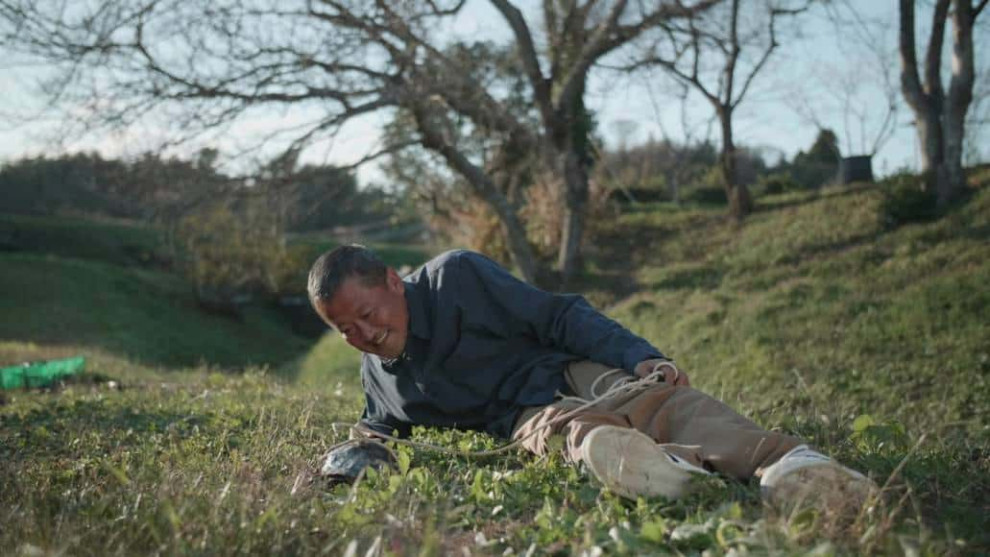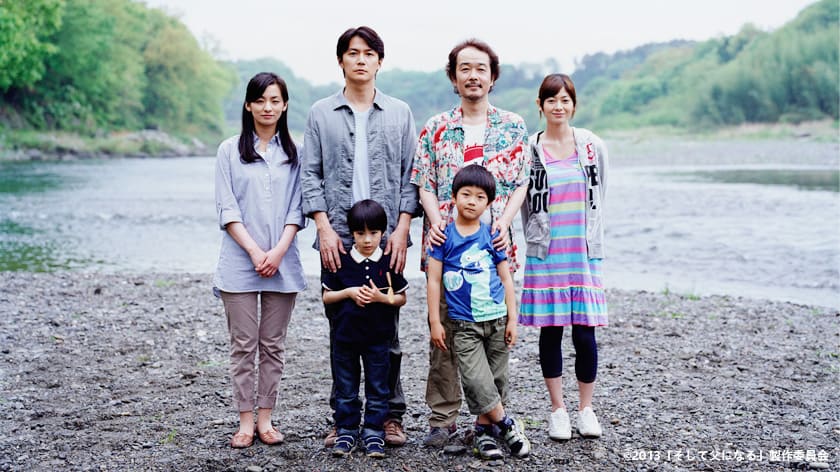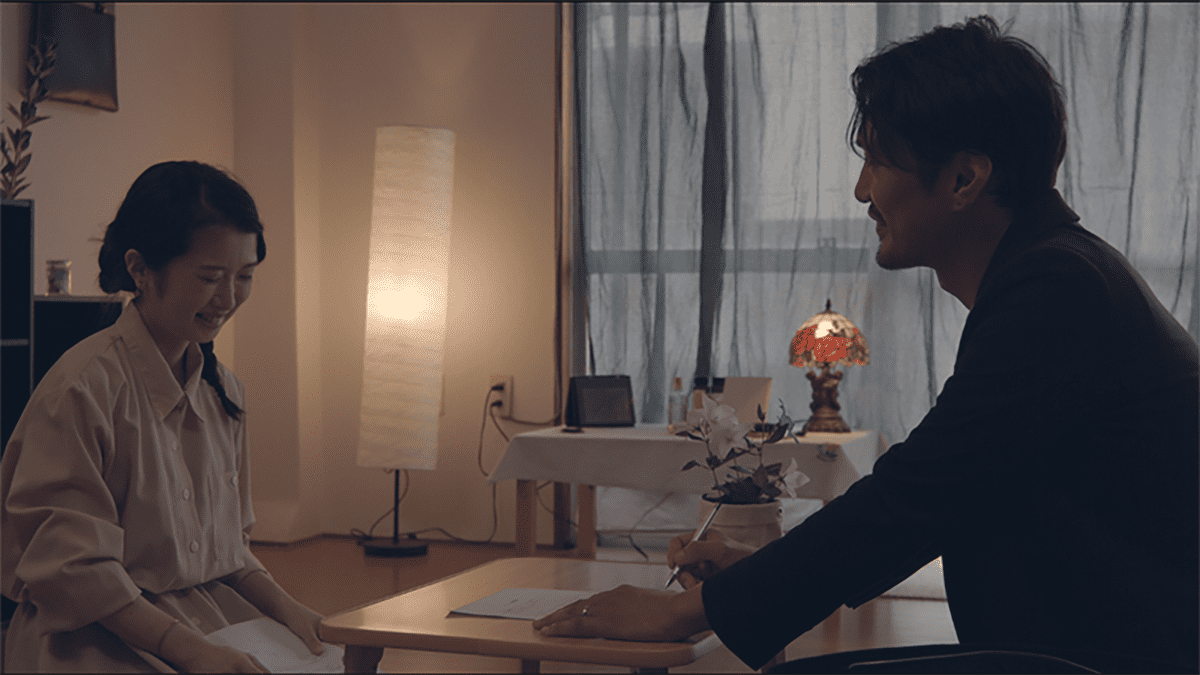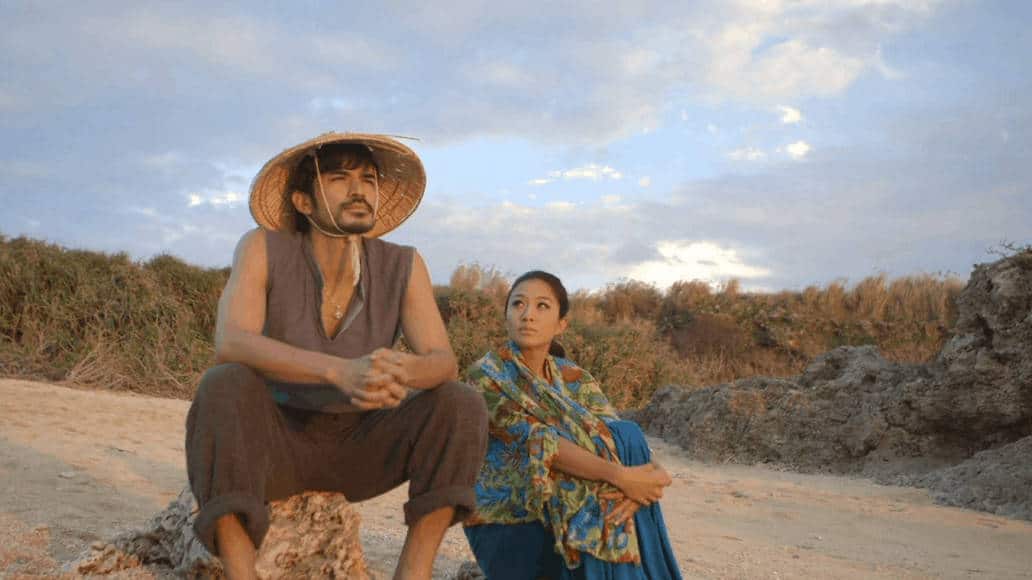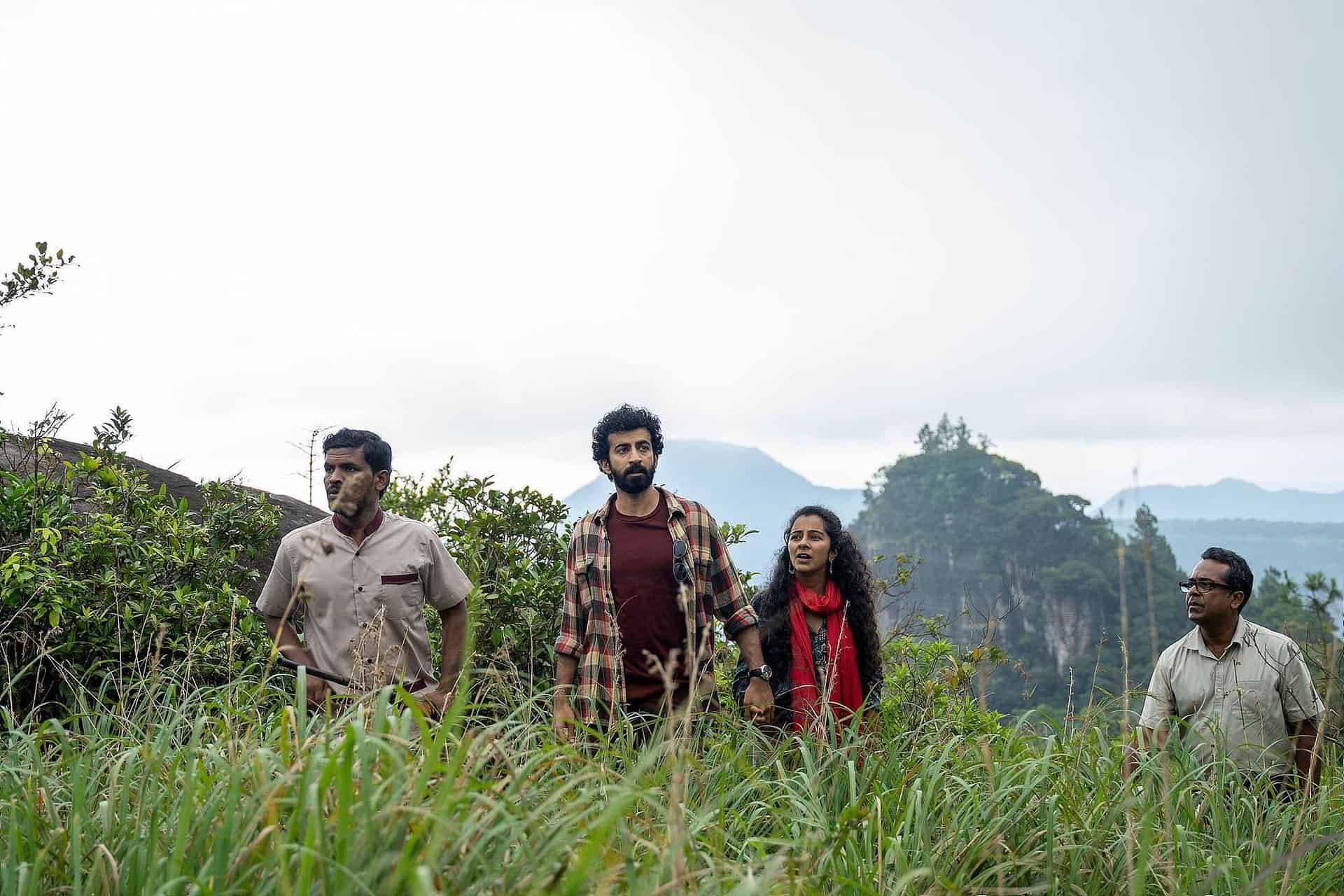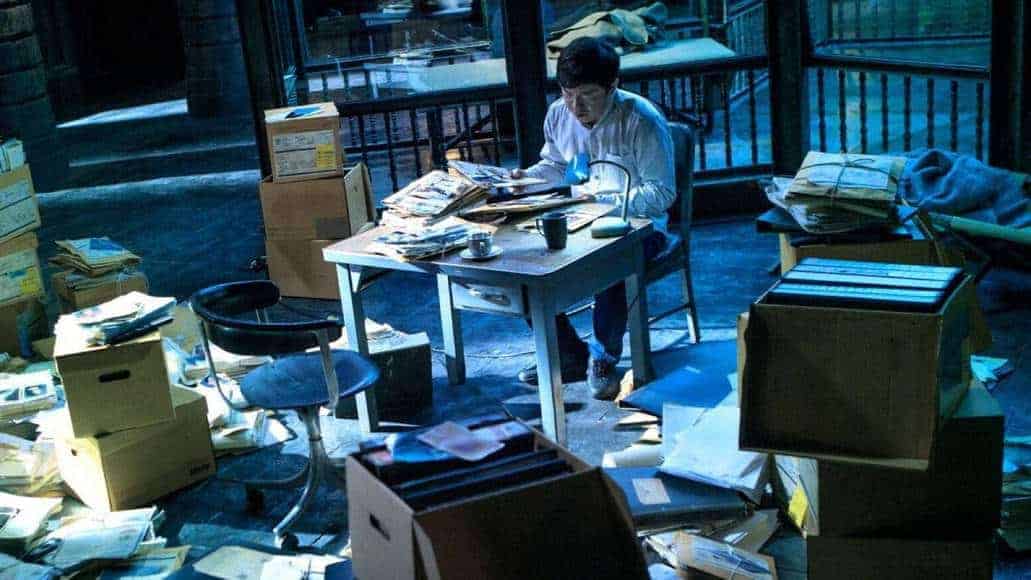In the plethora of “weird” movies coming out of Japan, Tadashi Nagayama has managed to stand out since his debut, “Journey of the Tortoise”, which won the Grand Prix at the 2017 Yubari International Fantastic Film Festival. “Being Natural” continues in roughly the same style.
Being Natural is screening at Camera Japan

Taka is kind of a simpleton. He is unemployed, loves to play the bongos, and his only occupation seems to be to take care of his demented uncle, an obnoxious man everybody seems to have abandoned, who actually allows his nephew to share his roof. Taka's life however takes a change for the much worse after his uncle dies, and the house passes to his brother, who does not seem to like our protagonist very much. Eventually though, he allows Taka to continue living in the house, and even employs him as he decides to reopen the fishing pond that used to operate in the back of the house.
When a couple from Tokyo moves into town though, along with their enthusiasm about rural life and natural settings comes their will to open a coffee house in the aforementioned family's house, and are soon revealed as people who will not stop at nothing to achieve their goal. Taka, his uncle, and his sole friend, who seems even simpler than he is, try to fight back against the father of the family, Keigo.

Tadashi Nagayama directs a quirky comedy, which, under layers of slapstick jokes and a number of eccentric characters, hides a number of rather pointy social comments. The most intense of them revolves around “city folks” and their supposed love for nature and rural life, which the movie makes a point of showing that is nothing but. In fact, it stresses the fact that these people actually want to change all of the rural elements to something more urbane, for personal gain, while in reality, do not understand, or care for the country ways. This tendency extends to all aspects of life, including food (particularly this one), entertainment, and social connections. The opposite fact, concerning the people who live in the country and the fact that they do not want to change and are actually suspicious of any outsiders (for good reason, as the film suggests) is also presented quite eloquently. The other comments revolve around family, tradition, and the difficult circumstances of living in the country, both professionally and socially.
In the aforementioned fashion, and as the “foreigners” reveal their true colors, the movie takes a completely different turn, which occasionally borders on the grotesque, as in the scene with Keigo and the turtle (which could even be perceived as a reference to Nagayama's previous film). Despite this tactic, the slapstick essence of the movie (and the continuous tendency towards the surrealistic) does not go away completely, although it is enriched with a distinct sense of irony, particularly regarding the concept of the city people who come to the country, and their supposed will to “become one with the nature”, with the irony even extending to the title of the film.

The acting on the film is on a very high level. Kanji Tsuda as Keigo proves once more that is a “chameleon” of acting, as his prowess extends to any kind of role he is asked to play. In this case, he makes a truly despicable villain, while exemplifying the fact that his character is losing his grip with reality as his obsession takes over. Yota Kawase as Taka, in one of his very rare first roles, gives an equally great performance, highlighting his simple, country bumpkin nature with gusto, and in the process proving that he deserves some protagonist roles in the future.
“Being Natural” is a great sample of the Japanese curio (nonsense film if you prefer) that combines social satire with slapstick aesthetics in the most entertaining fashion.


